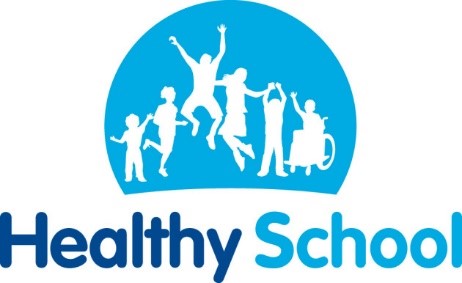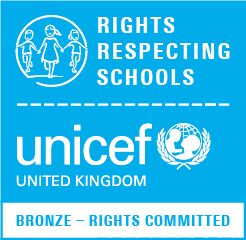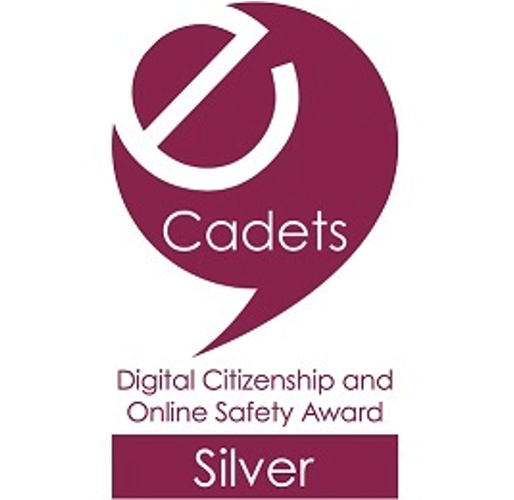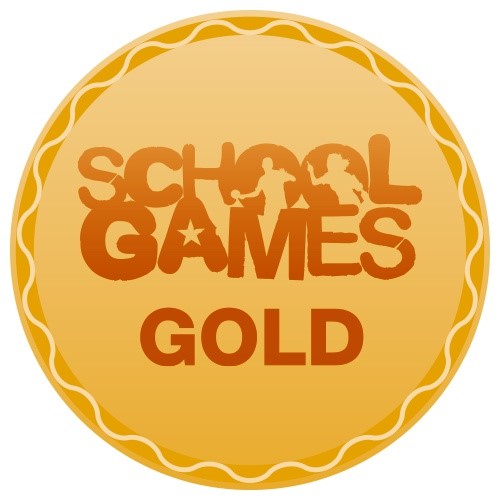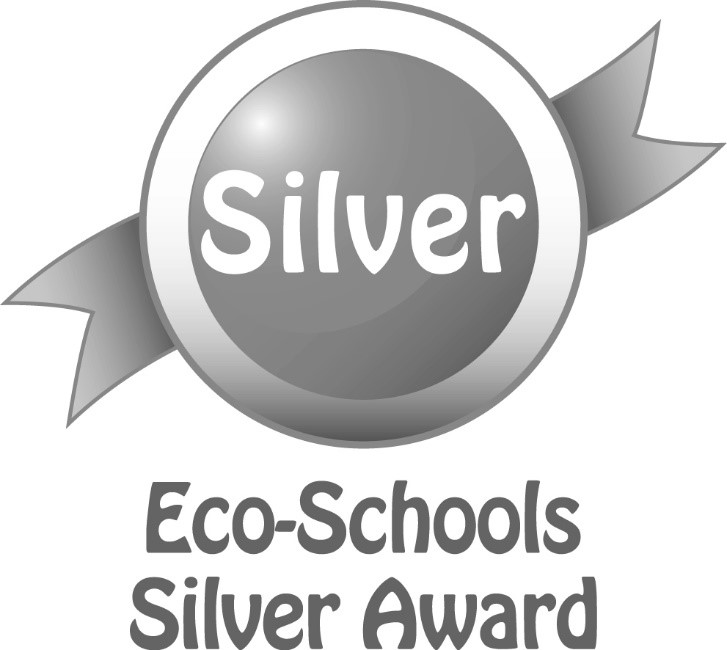Science
“Science may set limits to knowledge, but should not set limits to imagination.” Bertrand Russell
Purpose of Study
At St. John the Baptist Catholic Primary School we believe that a high-quality science education will lead to a better understanding of ourselves and the world. Through building up a body of key foundational knowledge and concepts, pupils should be encouraged to recognise the power of rational explanation and develop a sense of excitement and curiosity about natural phenomena. The curriculum should provide opportunities to develop attitudes of curiosity, originality, co-operation, perseverance, open-mindedness, self-criticism, responsibility and independence in thinking.
Intent
At St. John the Baptist Catholic Primary School, it is our intention to equip children with the foundations for understanding the world through a scientific lens. Pupils will be taught units of work in the specific disciplines of biology, chemistry and physics. The knowledge content is organised in a coherent way, ensuring learning builds from year to year. We aim to engage children as learners at many levels through linking ideas with practical experience, whilst helping children to learn to question and discuss scientific issues that may affect their own lives.
Our curriculum will enable children to develop, model and evaluate explanations through scientific methods of collecting evidence using critical and creative thought. It will teach children how major scientific ideas contribute to technological change and how this affects improving the quality of our everyday lives. Teachers will ensure that children are exposed to high quality teaching and learning. They will develop the child’s knowledge and understanding of the world and help children recognise the cultural significance of science and trace its development. Children will be encouraged to effectively and confidently communicate their scientific predictions and discoveries as they are given opportunities to observe, describe, illustrate, hypothesise, evaluate and interpret, using appropriate scientific vocabulary, whilst also developing an understanding of the effects of their own actions on the environment.
For us, a knowledge-rich curriculum is an entitlement for every child, regardless of background. Curriculum coherence enables children to develop knowledge, and love of science. The intention is to provide a curriculum that engages our children and plants the seeds for a lifetime of learning.
Implementation:
EYFS
Our EYFS at St John’s provides an engaging and encouraging climate for children’s early encounters with science. In EYFS we follow the 'Solihull Six Term Curriculum' in line with the 'Development Matters' (2023) framework. In the EYFS, the characteristics of effective learning from the Statutory Framework for the Early Years Foundation Stage are the foundations on which the working scientifically skills build in Key Stage 1. While children are playing and exploring, teachers model, encourage and support them to do the following:
- Show curiosity and ask questions.
- Make observations using their senses and simple equipment.
- Make direct comparisons.
- Use equipment to measure.
- Record their observations by drawing, taking photographs, using sorting rings or boxes and, in Reception, on simple tick sheets.
- Use their observations to help them to answer their questions.
- Talk about what they are doing and have found out.
- Identify, sort and group.
Key Stage 1 and 2
At St John’s, we use the scheme ‘Primary Knowledge Curriculum’ to support the planning of science lessons across Key Stage 1 and 2. (Please the 'Science Curriculum Overview' page)
Please note that teachers innovate in their delivery of science content to ensure links are made to the real world, to other subjects and to topics that concern the children where possible.
Impact:
Assessment
Our science curriculum is high quality, well thought out and planned to demonstrate progression. We have three aims of assessments tools used in science:
- To embed pupils knowledge
- To provide teachers with clear next steps for their learners
- To provide information to help shape the development of the curriculum
Through the explicit teaching of Science skills, both the teachers and the pupils assess their learning continuously throughout the lesson.
Day-today assessments include:
Knowledge organisers
Knowledge organisers contain ‘learning goals’ set out for each unit. These are displayed at the start of each unit and children have clear access to them throughout the coverage of the unit. Knowledge organisers include key facts and vocabulary for learners to remember and use. They are displayed on the Class dojo each half term so parents are aware and able to support learning at home.
Prior Learning Tasks
These tasks are completed at the start of each session. This provides an opportunity for reflection on prior knowledge and highlight any gaps in learning.
Multiple choice quizzes
Similar to ‘knowledge organisers’, these provided a ‘high challenge, low threat’ assessment tool. Children mark their own quiz and use this as a learning tool to highlight what they know and understand and what they need to remember and provides teachers with a useful insight of knowledge retained and any gaps to inform ‘responsive teaching’.
Task/writing assignments
Used to provide a useful picture of a pupil’s knowledge at the end of a taught unit.
High Quality Questioning
Teachers use to assess recall and knowledge.
Responsive Teaching
Teachers respond to the information gathered from assessment tools to inform planning and teaching.
High quality Curriculum Conversations
‘Pupil/staff voice’ A very useful assessment tool to address the impact and development of the curriculum.
Our assessment systems enable teachers to make informed judgements about the depth of their learning and the progress they have made over time. Parents are informed throughout the school year about their child’s progress in line with their year group expectations at parent’s evenings at the start and mid-year and in an annual school report sent out at the end of the year
Leadership Responsibility
Impact is also measure throughout the year by the science lead through;
- A reflection of standards achieved against the planned outcomes, which can be seen in our curriculum overviews for each year group.
- A reflection of the Science action plan, which is held account to its targets by SLT. This document is closely link to the SIP.
- The monitoring of progression, provision and impact throughout the year through ‘book monitoring’ of different groups to ensure the needs of all learners are met and teaching is taught at a high standard.
- Observations of science with SLT to provide feedback to teachers focused on aspects such as SEND, challenge, misconceptions etc.
Pupil Voice
“I liked learning about where to build our snowman by looking at where ice melts the fastest.” (Reception)
“I enjoyed learning about how the different types of trees.” (Y1)
“I love all the fun of investigations we do in Science it is really fun.” (Y2)
“I like learning about scientist and how they learned about things like gravity.” (Y5)
Snapshots
EYFS
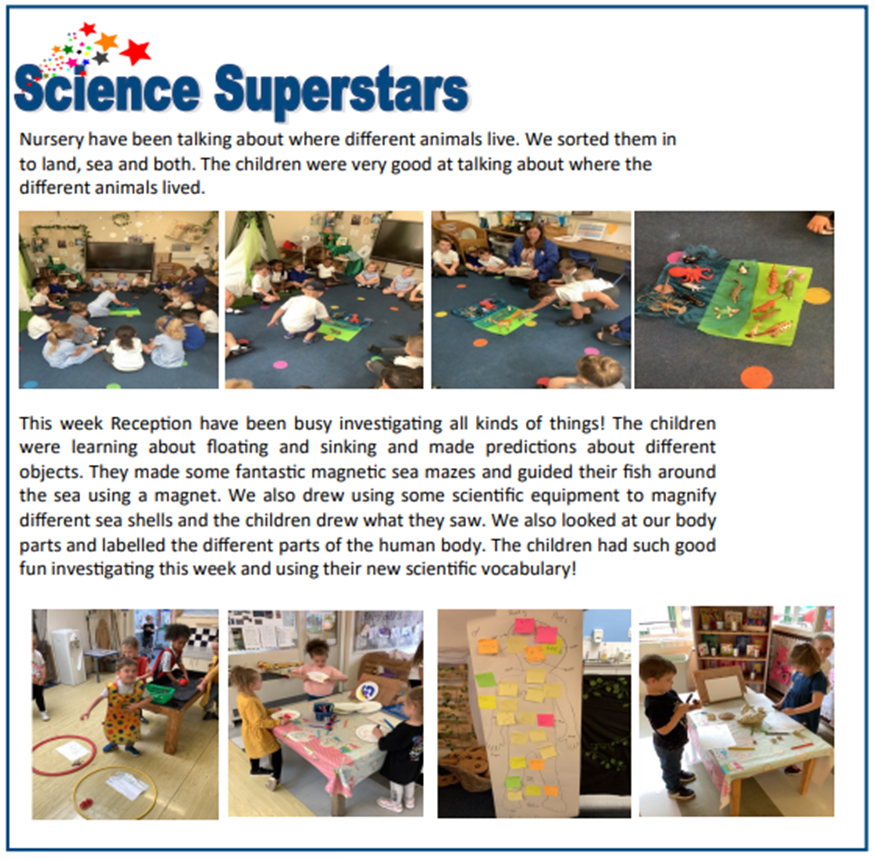 Year 1
Year 1
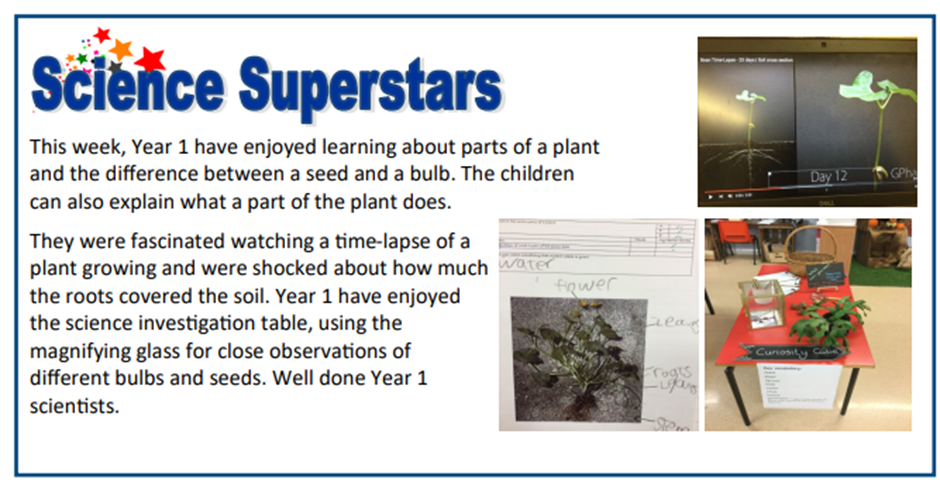
Year 2
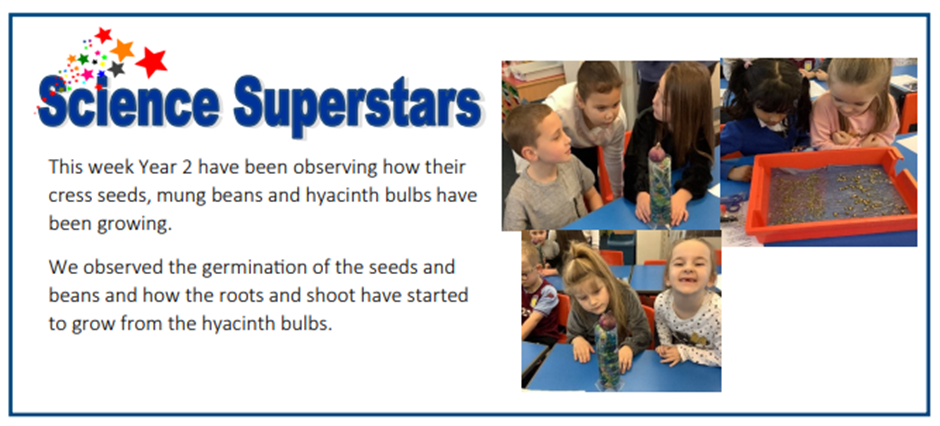 Year 3
Year 3
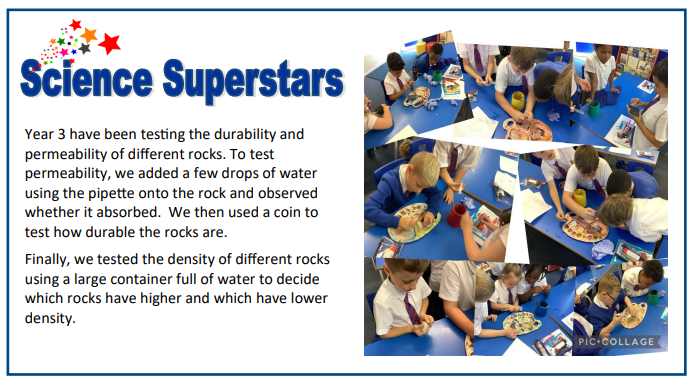
Year 4
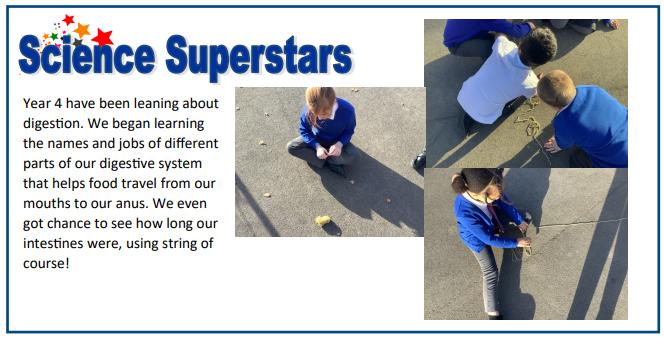
Year 5
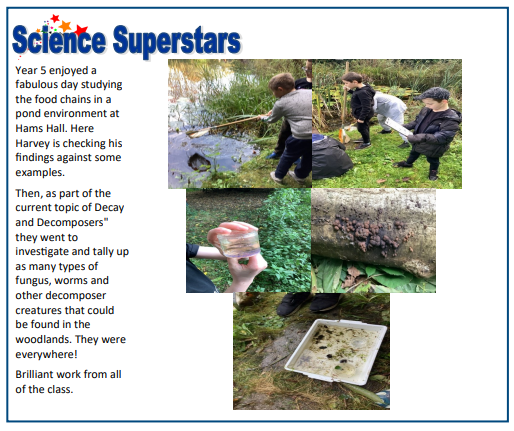
Year 6
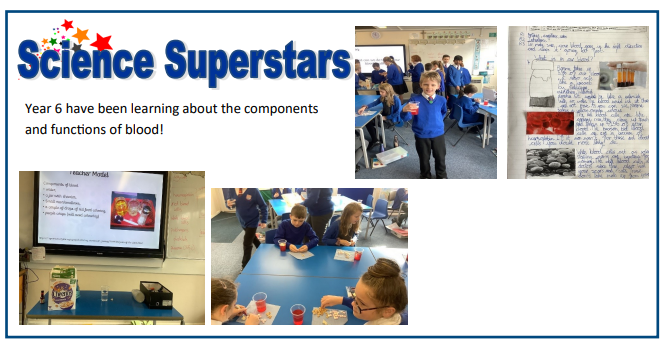
Home Learning
We want to support you as best we can with Science at home. Why don’t you and your family have a look at some of the resources provided below:
- Explorify (as a parent you may wish to sign up)
- BBC Bitesize KS1



